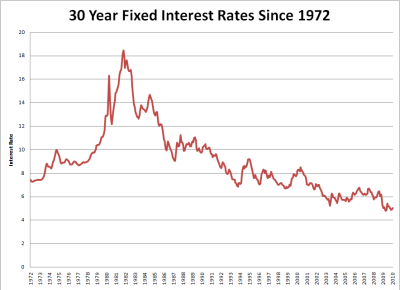
by Neil Kearney | Aug 11, 2010 | For Buyers, For Sellers, Real Estate 101
A recent advertising campaign had the slogan “Make sure your agent is a REALTOR”. The campaign was paid for and developed by  REALTORS who wanted to differentiate themselves from those real estate agents who are not REALTORS. Still, I don’t think the public gets it fully. “Aren’t all real estate agents REALTORS?” the public may think. This is like saying “aren’t all colas Coke” or “isn’t all tissue Kleenex?
REALTORS who wanted to differentiate themselves from those real estate agents who are not REALTORS. Still, I don’t think the public gets it fully. “Aren’t all real estate agents REALTORS?” the public may think. This is like saying “aren’t all colas Coke” or “isn’t all tissue Kleenex?
Currently there approximately 35,000 people in Colorado with a license to sell real estate. Of those people approximately 23,500 are REALTOR, meaning they are a member of the National Association of Realtors (NAR). So what is the difference and why should you care.
To start the explanation we go back to 1913 when The Code of Ethics (The Code) was first adopted by NAR. The Code is a document to which all REALTORS swear to abide by and be held to. The backdrop of the creation of The Code was an era of the fraudulent subdivision, the fake city addition, the multiple “first” mortgage, the “net” listing, and a myriad of other “get rich quick” schemes involving the sale of land.”1 It was a time before state regulations regarding real estate and the time when “buyer beware” really meant something. The Code was written on the premise that REALTORS should serve the public and being a REALTOR meant that you upheld a higher standard of business practices.
Nearly 100 years later The Code of Ethics is still going strong. It is a living document meaning that it is in a constant state of review and revision. Each year new interpretations and or Standards of Practice are added to The Code. It is as relevant now as it was 97 years ago.
The Code works because it includes both the ideals on which we should base our real estate practice and a mechanism for hearings, education and discipline where needed. The Code gives the public and our real estate peers a way to stand up for principle and make a stand for what is right.
The Code of Ethics is a document which includes 17 Articles organized under three main headings; ‘Duties to Clients and Customers’, ‘Duties to the Public’, and ‘Duties to REALTORS’. Each article is further explained by specific Standards of Practice which give clarification to the intent of the articles. The basis of all articles in The Realtor Code of Ethics is the Golden Rule “Whatsoever ye would that others should do to you, do ye even so to them”.
So what happens when in your opinion a REALTOR acts unethically? The public as well as fellow Realtors can file an ethics complaint with the local REALTOR association in which the offending agent is a member. There is then a pre-defined procedure in which the complaint is processed. The complaint is taken very seriously and is handled confidentially by a panel of peers. The first step is the Grievance Committee which determines if a hearing should take place. The Grievance Committee acts as a grand jury. If the complaint is determined to be valid, the next step is a full hearing which replicates a court of law. The outcome is not criminal but an offending REALTOR can be punished.
So, what does it matter if your agent is a REALTOR or not? Both are licensed and can help you buy and sell real estate but only a REALTOR has pledged to serve the public ethically and consistently, and is willing to be upheld to this standard by a panel of their peers. To me it is more than that. REALTORS have made a commitment to serve the public and to conduct business in a way that the public expects.
I am privileged to have been chosen to be the chairman of the Grievance Committe for the Boulder Area REALTOR Association this year. To me how business is conducted does make a difference.
To read The Code online click here.
1 – Article – “The Realtor’s Code of Ethics – A Gift of Vision, 1978 William D. North.

by Neil Kearney | Jun 22, 2010 | Boulder County Housing Trends, General Real Estate Advice, Real Estate 101, Statistics
What makes home prices fluctuate? There are many underlying reasons why home prices rise and fall but when you get right down to it is is good old supply and demand. If there are many buyers and few sellers prices will rise because of the scarcity. The converse is also true, if there are many homes on the market and few people want to buy them prices must come down in order to motivate and attract would-be buyers. Economics 101, right?
to it is is good old supply and demand. If there are many buyers and few sellers prices will rise because of the scarcity. The converse is also true, if there are many homes on the market and few people want to buy them prices must come down in order to motivate and attract would-be buyers. Economics 101, right?
Home prices around the United States have been declining over the past few years. We haven’t lost population but with the poor economy and tight credit which still prevails there are fewer buyers purchasing homes.
A few days ago a very cool population migration map was brought to my attention. The interactive population map which is presented on forbes.com shows, by county net migration and immigration. The really cool part about this tool is that is shows where the people are going and to what degree. To play with the map yourself go to here. I’d recommend it.
I also am a big fan of the Federal Housing Finance Agency’s quarterly housing price index. The index shows how home values have fared in 300 metropolitan areas throughout the United States on a quarterly, 1 year and 5 year basis. It then ranks home price appreciation using that data.
I thought I would see if there was a link between home values and the migration patterns. I hope you find some interest in the following presentation.
After studying it, I am struck by how good our position is here in Boulder County going forward. All predictions show that we are going to continue to gain population. We have a stable economic base. One of the best technology centers around, a vibrant university and a emerging industry to be as ConocoPhillips moves to our area in a few years.


by Neil Kearney | May 25, 2010 | For Sellers, Real Estate 101
Deciding to sell your house is a big decision. Once you have decided to place your house on the market putting your houses ‘best foot  forward’ is one important step to getting it sold. Here is a link to an article which addresses this subject. Of course I’m always happy to come out and take a look at your house and let you know what I think needs to be done. In my experience you are much better off doing the work in advance than waiting for a negotiation with a buyer that might never come.
forward’ is one important step to getting it sold. Here is a link to an article which addresses this subject. Of course I’m always happy to come out and take a look at your house and let you know what I think needs to be done. In my experience you are much better off doing the work in advance than waiting for a negotiation with a buyer that might never come.
Visit houselogic.com for more articles like this.
Copyright 2010 NATIONAL ASSOCIATION OF REALTORS®

by neil kearney | Feb 24, 2010 | General Real Estate Advice, Real Estate 101
From time to time it is good to gain some perspective on the environment around you. The real estate market is dependent upon many factors, one of the most important being interest rates. The affordability of a home depends upon two variables: price and interest rates. A 1% hike in rates can mean a big difference in what type of house you can afford. For example, a buyer borrowing $400,000 at 5% would make roughly the same payment as a buyer borrowing $357,000 at 6%.
While the market hasn’t been great over the past two years, imagine if the rates were not within a whisker of the all-time record lows. These rates will not last forever. Now is the time to take advantage.
The chart below shows monthly 30 year fixed interest rates since January of 1972. Source of the raw data was Freddie Mac.

by neil kearney | Jan 27, 2010 | For Buyers, For Sellers, General Real Estate Advice, Real Estate 101
A good negotiator is someone who always gets what they want. Right? I say, not always. Being a good negotiator to me is someone who can give themselves or their clients the best chance to achieve their goals. Giving you the best chance does not always mean you will get exactly what you want. In order to achieve sustained success, a negotiator must go for Win-Win, not Win-

Lose. A successful negotiation substantially meets the goals of all parties involved.
Right now in the Boulder area real estate market buyers have the perception that they may be able to get a great deal on a home. It is true that there is more inventory out there and a portion of those sellers are quite anxious to sell. I have seen lately many offers well below full price and it takes a delicate touch to try to meet somewhere in the middle. Here is what I try to do to give the offer the best chance to come together.
- Do our homework – find out what is reasonable. What have other houses actually been selling for? How much is the average negotiation off of full price?
- Establish goals – What would be an acceptable outcome. Begin with the end in mind and you have a much better chance to get there. Be realistic.
- Understand the situation – Try to understand what situation your counterpart is in. Understanding is power. With every contact, I try to learn a bit more about where the other people are coming from. Many times, after making an offer, it is the first counter that gives you the most information.
- Keep the lines of communication open – As a Realtor I need to represent my clients to the best of my ability, but I have found that being adversarial to the other side doesn’t get you anywhere. I try to keep on very good terms with the other agent. I find that this helps in coming to a successful closing. If we become adversarial along the way it is very hard solve all of those little details that come up between contract and closing. I try to treat other Realtors well, so the next time we are working together they can tell their clients I am easy to work with and to expect a smooth transaction.
- Remember that every situation is different – You never know what other people are thinking. You can guess someone’s motivations but you never know what are the true motives. Don’t try to guess, try to learn, understand and adapt.
- Anticipate – I find that I am really able to help my clients by anticipating what may happen during a certain transaction. If we can talk about different scenarios before they happen they are easier to solve when they come up.
by neil kearney | Nov 18, 2009 | For Buyers, Real Estate 101
One of the greatest sources of letdown and conflict in a real estate transaction is the condition of the house after the Sellers  move out. Provisions in the purchase contract allow for the buyer to do a walk through inspection prior to closing. I advise my buyers to do this walkthrough as late as possible so as to see the true condition of the property as it will be left. What to look for in a walkthrough could be its own topic but in summary; we are checking to make sure that the inspection items were completed as agreed upon, the inclusions are still at the house, that there has not been any recent damage to the house and finally to check the cleanliness of the house. The first three items are fairly “cut and dry”, either the refrigerator is in the kitchen or it’s not. I have found that cleanliness is very subjective. What may be very clean to one hurried, harried seller may be “filthy” to the buyer. I try to mitigate this by talking about this subjective divide as we write the agreement and make the language in the contract as plain and literal as possible. Instead of saying carpet cleaning (sellers picture the Bissell in their closet, buyers picture the $500 top of the line pro), I would make it clear that the carpets are to be cleaned by a professional with the receipt provided.
move out. Provisions in the purchase contract allow for the buyer to do a walk through inspection prior to closing. I advise my buyers to do this walkthrough as late as possible so as to see the true condition of the property as it will be left. What to look for in a walkthrough could be its own topic but in summary; we are checking to make sure that the inspection items were completed as agreed upon, the inclusions are still at the house, that there has not been any recent damage to the house and finally to check the cleanliness of the house. The first three items are fairly “cut and dry”, either the refrigerator is in the kitchen or it’s not. I have found that cleanliness is very subjective. What may be very clean to one hurried, harried seller may be “filthy” to the buyer. I try to mitigate this by talking about this subjective divide as we write the agreement and make the language in the contract as plain and literal as possible. Instead of saying carpet cleaning (sellers picture the Bissell in their closet, buyers picture the $500 top of the line pro), I would make it clear that the carpets are to be cleaned by a professional with the receipt provided.
No matter what you try to plan for it is an issue. Sometimes it becomes an outlet for buyer frustration after a particularly tough set of negotiations. Sometimes it is a seller with good intentions but not enough time. Sometimes it is a professional hired who does a less than professional job. All I know is that I have hired cleaners, pitched in with the sellers as we did a last minute shine or have cleaned cupboards and closets myself. Small important details in making the closing day go smoothly and making my clients happy.
So some parting advice:
To Sellers:
- Plan in advance. Closing and moving is a very hectic time and it is not always easy to complete all of those little last minute tasks.
- Bring in help. Hire a cleaning company or better yet family. It is always very hard to go back to the old house to clean while all of your stuff is at the new house.
To Buyers:
- Get it in writing. If you are worried about the condition of the house, set forth your expectations in writing.
- Be realistic. Maybe you have to tidy up a bit when you move in to bring it up to “your” standards. Don’t let it ruin your day.

 REALTORS who wanted to differentiate themselves from those real estate agents who are not REALTORS. Still, I don’t think the public gets it fully. “Aren’t all real estate agents REALTORS?” the public may think. This is like saying “aren’t all colas Coke” or “isn’t all tissue Kleenex?
REALTORS who wanted to differentiate themselves from those real estate agents who are not REALTORS. Still, I don’t think the public gets it fully. “Aren’t all real estate agents REALTORS?” the public may think. This is like saying “aren’t all colas Coke” or “isn’t all tissue Kleenex?







